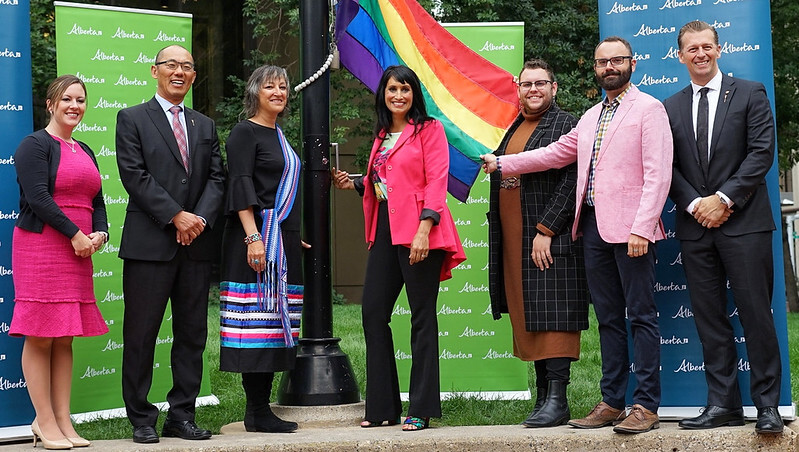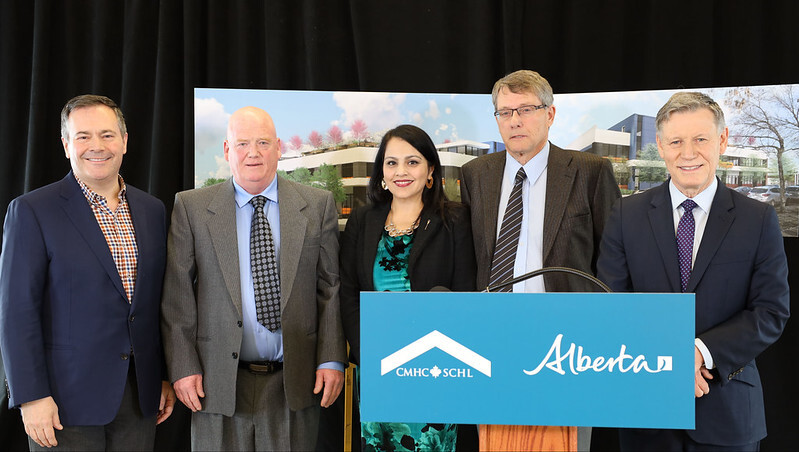
Photo: iStock/nensuria
The UCP knew the inequitable impacts of COVID-19 all along
Women have it harder, and need more support.
Support independent Alberta journalism!
Sign Me Up!The Sprawl connects Calgarians with their city through in-depth, curiosity-driven journalism. But we can't do it alone. If you value our work, support The Sprawl so we can keep digging into municipal issues in Calgary!
In early March 2020, around the time most of us were disinfecting every surface we encountered, Alberta’s Ministry of Culture, Multiculturalism and Status of Women began a daily report of research and analysis on the gender and intersectional effects of COVID-19.
The research shows that there were many warnings for possible outcomes that we did see—about rising domestic violence, the vulnerability of foreign workers and the spread of infections into care homes.
According to documents obtained by The Sprawl through a freedom of information request, this research was shared with deputy ministers of health and municipal affairs, the province’s pandemic response team and a variety of committees. The daily reports added up to more than 200 pages of documentation that tracked the effects of the pandemic in other countries, as well as the decisions of their governments.
Multiple ministries also received a distilled, two-page version of the report, which was provided to executive council in a memo dated May 8, 2020.
One of the obtained documents is a briefing note to the minister for the status of women which says “evidence from previous disasters and pandemics confirm that these events impact men, women and gender-diverse people differently.”
Another briefing included in the package says “some people will be impacted more based on factors such as their race or ethnicity, income, immigration status, and location.”
I can only interpret from [the lack of response] that this government has fully abandoned any attempt at intersectionality.
The report also notes that “transgender people report high levels of discrimination and stigma in accessing healthcare settings. This may particularly be the case for those whose names and gender did not match on their official documents.”
The documents show that Alberta’s United Conservative Party (UCP) government had good information about what to expect during the pandemic for women and vulnerable groups, but it ignored many of the details that didn’t align with its agenda.
In the midst of a 'she-cession'
In a March 15 standing committee meeting on Alberta’s economic future, Edmonton-Highlands-Norwood MLA Janis Irwin asked Leela Aheer, former minister of culture, multiculturalism and status of women, to address a drop in women’s employment.
“We’re in the midst of what’s been labelled a ‘she-cession,’” Irwin said in the meeting.
A report from the Business Council of Alberta shows that the province’s first round of business closures in March 2020 had much larger negative impacts on the labour market outcomes of women than men, particularly younger women. That’s because jobs more likely to be held by young women—retail, hospitality and public sector jobs—were slow to return.
In the committee meeting, Irwin, who is also the New Democratic Party (NDP) critic for the status of women, said there was a need to focus on women’s voices in economic recovery plans, and that Aheer had not done so.
Aheer did not appreciate that statement and reminded everyone at the meeting that she’d just overseen the renaming of Violet King Henry Plaza, the space in front of the federal building in Edmonton, in honour of the first Black female lawyer in Canada.
According to a source inside the status of women ministry, it was challenging to send briefings or information to other departments because there were many phrases that Premier Jason Kenney’s cabinet took issue with. According to the source, Aheer told the staff that the term “gender based analysis plus” (GBA+) made people in government defensive. The purpose of GBA+ is to consider the lived realities of women, as well as those from gender diverse and racialized communities.
Aheer did not respond to multiple requests for comment for this story.
“I’ve tried to get more information on where [gender based analysis plus] is at to no avail,” Irwin said in an interview with The Sprawl, “so I can only interpret from [the lack of response] that this government has fully abandoned any attempt at intersectionality and that is incredibly troubling when we know COVID has disproportionately impacted women and gender diverse folks.”
The documents obtained by The Sprawl also include different versions of the research report as it was updated. According to the ministry source, “intersectionality,” a term used to discuss inequalities associated with overlapping identities (such as gender, race and class), was removed from later versions of internal research documents, though it's unclear exactly when this happened.
However, in his response to the federal government’s September throne speech, Jason Kenney referred to intersectionality as a “kooky academic theory aimed at winning more votes.”
According to the source in the ministry, Aheer told the staff that the term ‘gender based analysis plus’ (GBA+) made people in government defensive.
In an annual report released August 2020, Aheer says she asked her ministry to redesign GBA+ and unconscious bias training “to better reflect the ministry’s multiculturalism mandate.”
That same annual report, however, was noticeably silent on other issues that were affecting women. In it, Aheer mentioned support for sexual assault survivors, but she neglected to mention matters such as job losses or a lack of access to affordable child care, which is crucial to women participating in the workforce.
The latest annual report released in June does mention child care, but it wasn’t treated as a key issue during the pandemic.
A report on economic recovery from the YWCA lists child care as a crucial part of women returning to work after COVID-19. In March 2020, the government worked to reopen child care centres for essential workers. And for qualifying parents with a child enrolled in child care, the children’s services ministry announced a one-time payment of $561 per child earlier this year.
Monthly child care bills, however, can be $925 to $1,050 depending on the age of the child, and when the federal government introduced a national program to bridge access to affordable care, Kenney said it was not right for Alberta at a press conference in April. Just last week, the province finally reached a new agreement with the feds to improve access and affordability of child care in Alberta, and recently lowered the bar for families to apply for subsidies.
'There are additional barriers'
The “kooky academic theory” of intersectionality, however, still found its way into conversations of Rajan Sawhney, a UCP MLA for Calgary-North East. Sawhney was Alberta’s minister of community and social services before a recent cabinet shuffle moved her to the Ministry of Transportation.
During a webinar for the Canada West Foundation on April 27, Sawhney spoke on a panel about women and economic recovery from the pandemic. She referenced the multiple lenses of race, class and gender—also known as intersectionality—from which she views the effects of the pandemic.
People of colour, she added, and especially women of colour from disability and LGBTQ communities, have had a worse time during COVID-19.
My experience as a racialized woman is that there are additional barriers.
In an interview, Sawhney spoke to The Sprawl about the importance of focusing on women in economic recovery. She has lived experience in leaving a job she enjoyed to care for her children shortly after returning from a maternity leave.
“I was unable to hire a nanny at that time and I have a daughter who's a Type 1 diabetic, so she's insulin dependent,” Sawhney said. “The kind of childcare that I needed was very particular.”
When asked about Kenney’s comments on intersectionality, Sawhney said she can’t speak for the premier, but as a racialized woman, she knows that there are additional barriers people face depending on their sexual orientation, gender, skin colour and ability.
“I'll never refute anybody else's opinion or go on the record saying that somebody is wrong, but my experience as a racialized woman is that there are additional barriers. When we talk about diversity and inclusion, you know they're two very different things.”
Danielle Paradis is a writer living in Edmonton. Her interests include Indigenous issues, feminism and civic engagement. Follow her on Twitter @DaniParadis.
One more thing before you go...
Sign Me Up!The Sprawl connects Calgarians with their city through in-depth, curiosity-driven journalism. But we can't do it alone. If you value our work, support The Sprawl so we can keep digging into municipal issues in Calgary!






